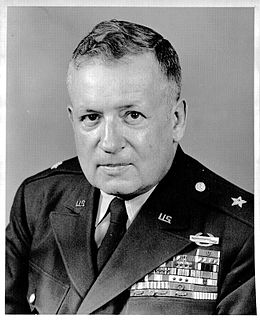A Quote by Alexis de Tocqueville
There are at the present time two great nations in the world--the Russians and the Americans. The American relies upon his personal interest to accomplish his ends and gives free scope to the unguided exertions and common sense of the people. The Russian centers all his authority of society in a single arm. The principal instrument of the former is freedom; of the latter, servitude. Their starting point is different and their courses are not the same; yet each of them seems marked by the will of Heaven to sway the destinies of half the globe.
Quote Topics
Accomplish
American
Arm
Authority
Centers
Common
Common Sense
Courses
Different
Each
Ends
Former
Free
Freedom
Gives
Globe
Great
Great Nation
Great Nations
Half
Heaven
His
Instrument
Interest
Latter
Marked
Nations
People
Personal
Personal Interest
Point
Present
Present Time
Principal
Russian
Russians
Same
Scope
Seems
Sense
Servitude
Single
Society
Starting
Starting Point
Sway
Them
Time
Two
Will
World
Related Quotes
It is God’s will through His wonderful grace, that the prayers of His saints should be one of the great principal means of carrying on the designs of Christ’s kingdom in the world. When God has something very great to accomplish for His church, it is His will that there should precede it the extraordinary prayers of His people; as is manifest by Ezekiel 36:37. and it is revealed that, when God is about to accomplish great things for His church, He will begin by remarkably pouring out the spirit of grace and supplication (see Zechariah 12:10).
The only distinction between freedom and slavery consists in this: In the former state a man is governed by the laws to which he has given his consent, either in person or by his representative; in the latter, he is governed by the will of another. In the one case, his life and property are his own; in the other, they depend upon the pleasure of his master. It is easy to discern which of these two states is preferable.
I have often asked Americans wherein they consider their freedom superior to that of the English, but have never found them able to indicate a single point in which the individual is worse off in England as regards his private civil rights or his general liberty of doing and thinking as he pleases. They generally turn the discussion to social equality, the existence of a monarchy and hereditary titles and so forth - matters which are, of course, quite different from freedom in its proper sense.
Where it is in his own interest, every organism may reasonably be expected to aid his fellows. Where he has no alternative, he submits to the yoke of communal servitude. Yet given a full chance to act in his own interest, nothing but expediency will restrain him from brutalizing, from maiming, from murdering his brother, his mate, his parent, or his child. Scratch an 'altruist' and watch a 'hypocrite' bleed.
The essential facts are known. We know of the weapons in Saddam's possession: chemical, biological, and nuclear in time. We know of his unequaled willingness to use them. We know his history. His invasions of his neighbors. His dreams of achieving hegemonic control over the Arab world. His record of anti-American rage. His willingness to terrorize, to slaughter, to suppress his own people and others. We need not stretch to imagine nightmare scenarios in which Saddam makes common cause with the terrorists who want to kill us Americans and destroy our way of life.
Typically, the hero of the fairy tale achieves a domestic, microcosmic triumph, and the hero of myth a world-historica l, macrocosmic triumph. Whereas the former-the youngest or despised child who becomes the master of extraordinary powers-prevails over his personal oppressors, the latter brings back from his adventure the means for the regeneration of his society as a whole.
As long as the reason of man continues fallible, and he is at liberty to exercise it, different opinions will be formed. As long as the connection subsists between his reason and his self-love, his opinions and passions will have a reciprocal influence on each other, and the former will be objects to which the latter attach themselves.
It is the interest of every man to live as much at his ease as he can; and if his emoluments are to be precisely the same, whether he does or does not perform some very laborious duty, it is certainly his interest, at least as interest is vulgarly understood, either to neglect it altogether, or, if he is subject to some authority which will not suffer him to do this, to perform it in as careless and slovenly a manner as that authority will permit.
In the latter sense, a man has a property in his opinions and the free communication of them. He has a property of peculiar value in his religious opinions, and in the profession and practice dictated by them. He has an equal property in the free use of his faculties and free choice of the objects on which to employ them. In a word, as a man is said to have a right to his property, he may be equally said to have a property in his rights.
A God who draws near out of love, the Holy Father continued, walks with His people, and this walk comes to an unimaginable point. We could never have imagined that the same Lord would become one of us and walk with us, be present with us, present in His Church, present in the Eucharist, present in His Word, present in the poor, He is present, walking with us. And this is closeness: the shepherd close to his flock, close to his sheep, whom he knows, one by one.





































